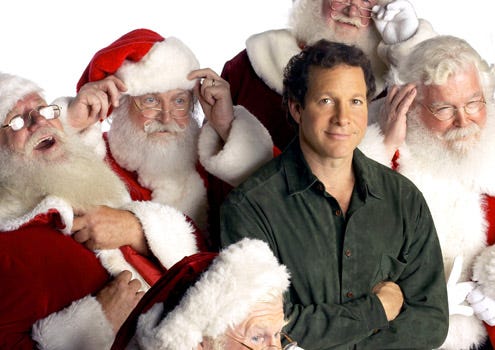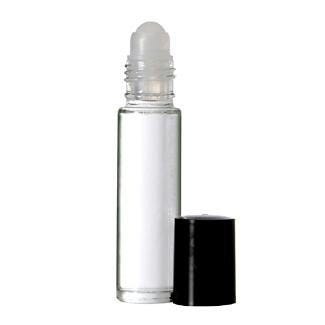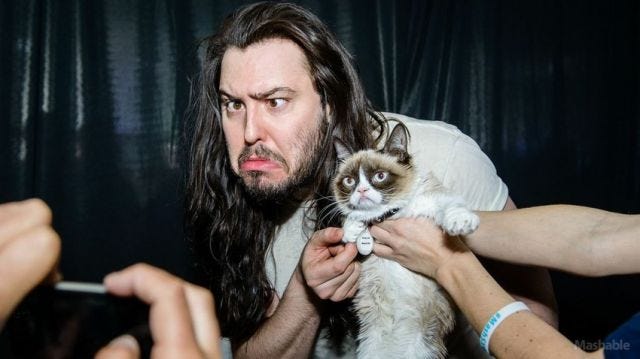So What, Who Cares (vol 1, issue 47) What you smell like when you smell like Play-Doh
Hello, everyone and happy end-of-the-week. Welcome to all of the new subscribers! I am thrilled you're here.
*
Two pieces of newsletter business:

First, you get to decide: pop culture or charity? I will spend the month of December bringing you a new piece of holiday-themed pop culture every day OR I will bring you a blurb about a worthy cause to consider bequeathing your surplus goodwill toward personkind (vol 1, issue 46). You decide, I write! Weigh in via email or Twitter. In honor of cracking the 500-subscriber mark, I'm going to extend the deadline: 'll take your votes through Monday, November 10.
(So far the pop culture votes are winning on a two-to-one margin. But there's always time to change that outcome -- we're no 538 with statistical predictions here.)
Second, So What, Who Cares? will not be produced next Tuesday PM/Wednesday AM and WednesdayPM/Thursday AM. The Sierras are calling my name, and I plan to run to the hills. When I run back, I'll have pie, and wine (for me) and a Friday make-good edition (for you).
*

Would you like to smell like Play-Doh? Then look for a perfume with "heliotrope" as a note in it. And by the way, the difference between a fragrance's note and its accord comes down to quantity: Your Eau de Playground may have a note of heliotrope in it, but the accord could be comprised of heliotrope, Crayola wax and peanut butter.
So what? This whole article on what beauty copywriting actually means is a great way to become fluent in the language of personal grooming without having to set foot in an Ulta.
Who cares? Those of us who have always wondered what the tiny hieroglyphics on the side of our skin cream mean. Also it's really great to find out from someone who is not trying to sell you $58 face cream that, "Generally, products with “-ing” claims have to undergo more testing. So a lotion that says it’s “moisturizing” has been tested for that claim; a lotion “with moisture orbs!” hasn’t. “-ing” products actually have to do stuff."
*
*
The cost of college textbooks has more than doubled in the past decade, a rate of growth that has surpassed the growth rate of housing costs or health care costs. (Related: college tuition costs have risen, on average, 40% in the last decade.) Yet students are spending approximately the same amount on textbooks as their predecessors did ten years ago. How? The monopoly the college bookstore used to have has been broken by the Internet (which makes it easy to find the same book online for less), textbook rentals and electronic versions of those $300 hardcovers.
So what? There are a plethora of companies out there hoping to capture tech-savvy college students with textbook comparison-shopping services or e-book rentals. One catch: students are not terribly keen on using electronic textbooks. Another catch: You can't resell electronic textbooks at the end of a semester.
(As of now, there are no numbers calculating whether students who go wholly electronic end up spending less out of pocket over their entire college career than those who can resell their paper books.)
Who cares? The textbook publishers of America, for sure. College bookstores, which will have to start stocking other merchandise to make up for the revenue they'll no longer be raking in at the beginning of each semester. And students -- the high cost of textbooks is actually a barrier to education for some people, especially those who are unlikely to live in homes with broadband internet access.
Then again, reading something electronically instead on a printed page can also be a barrier to information retention -- and that presents its own educational challenges.
*

Your pop-culture note of the day: I am fascinated by Andrew W.K., mostly for the same reasons I'm fascinated by Weird Al Yankovic -- they're sharp people who channel an anarchic, selfless joy into their body of work.
(This Five Second Film about what happens when you say "Andrew W.K." three times always cracks me up. As does this Five Second Film about Andrew W.K. as your worst hangover buddy.)
(Actually, the Five Second Film thing is pretty great: Every weekday, they post a five-second film that manages to tell a funny story.)
ANYWAY: Andrew W.K. is not merely a white-clad man who runs around like a child at a birthday party. He is also a very insightful advice columnist for the Village Voice. His September 3, 2014, column, "Prayer Is Stupid, Right?" is a wise and compassionate take on how to handle feeling helpless in the face of grief.
I give you all this backstory because it deepens the experience of reading Thursday's Flavorwire interview with Andrew W.K., in which he talks about how bringing other people fun has given his own life deeper meaning.
Also, I like the interview for how Andrew W.K. explains the very idea of "Andrew W.K.":
“In Times Square, or in Las Vegas, for example, there are these very flashy, bright signs and entryways into a casino or a movie theater or a business or a place, where they want you to come in. So I wanted to create something that was loud and clear, so you could say it cut through everything, or maybe it adds to the noise, but where you say, ‘Oh, if I go to this thing, this is what I’m going to get.’"
I enjoy a performer who does not hesitate to remind you that their performance is a deliberately constructed product for public consumption.
*
Did you miss an issue of So What, Who Cares? The archive is here. Also, there is now a topic index that tells you what was in each issue. If you're like, "I remember there was an issue with a Philip Seymour Hoffbrau joke, but when ...?" -- well, now you can find it. (It was September 24, 2014, btw.)
As always, I welcome your feedback and suggestions via email or Twitter. Always let me know what you think about So What, Who Cares? If you really like it, tell a friend to subscribe.

